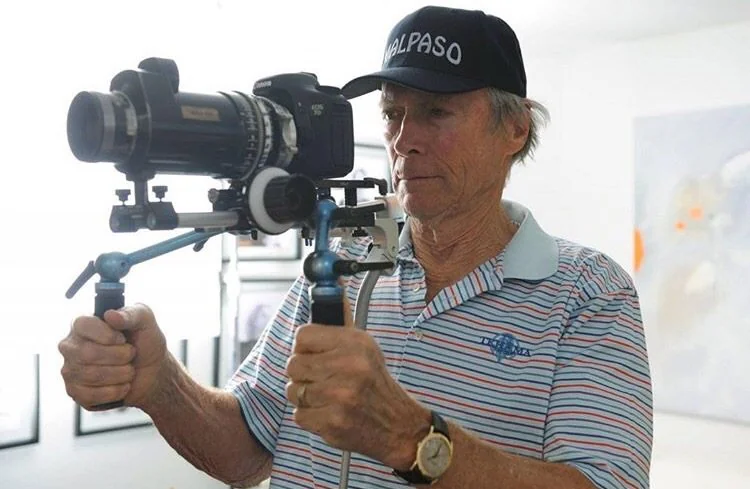As a director, Clint Eastwood has garnered a reputation for being quick and methodical. He often gets the shots he needs in just one or two takes. Eastwood has worked in the business for a long time on both ends of the cameras. He often knows what works and doesn’t work. Eastwood establishes a connection with his actors prior to filming. The director said he doesn’t like to linger on scenes. He believes too much examination can ruin the magic of a production, scene, or character.

“I have a reputation for always going with the first or second take,” Eastwood wrote in “FilmCraft: Directing,” a book about filmmaking. “Of course, I don’t always get it in one or two takes. It’s more that I want to get the feeling that we’re moving. You have to keep the crew and the production going at a business-like pace. So they get the feeling they are part of something that’s actually moving forward.”
Clint Eastwood Reflects on Filmmaking
Eastwood likes to keep his cast and crew looking forward to the next scene. He isn’t one to redo a scene 70-80 times like some directors. Eastwood describes the atmosphere on his sets as relaxed. Sometimes, the director said he would film rehearsals. Because he believes certain actors carry an intensity initially that can be lost with repetition.

“The cast and crew feel like they are going somewhere when they go to work each day and feel like they are accomplishing something and not just doing the same scene each day,” Eastwood continued. “I like to do whole sequences in one day, so everyone has the feeling that all the parts are there and, besides, it helps for editing purposes. It’s my job to make sure that the set and atmosphere that everyone is working in are comfortable. That’s the way to get the best out of people.”
Eastwood confessed that he learned a lot about directing by being an actor. He worked for some pretty famous directors himself. Sergio Leone and Don Siegel rank among his creative inspirations. He also looked toward other directors of the past.
“A lifetime in movies is the same as a lifetime in any profession: you are constantly a student,” Eastwood wrote. “Every film is different and has different obstacles to overcome and that’s what makes it interesting. That’s why I continue to do it and enjoy the challenges of it. As long as you remain open to new ideas and developing your own philosophies as you go, it’s a very enjoyable process.”
